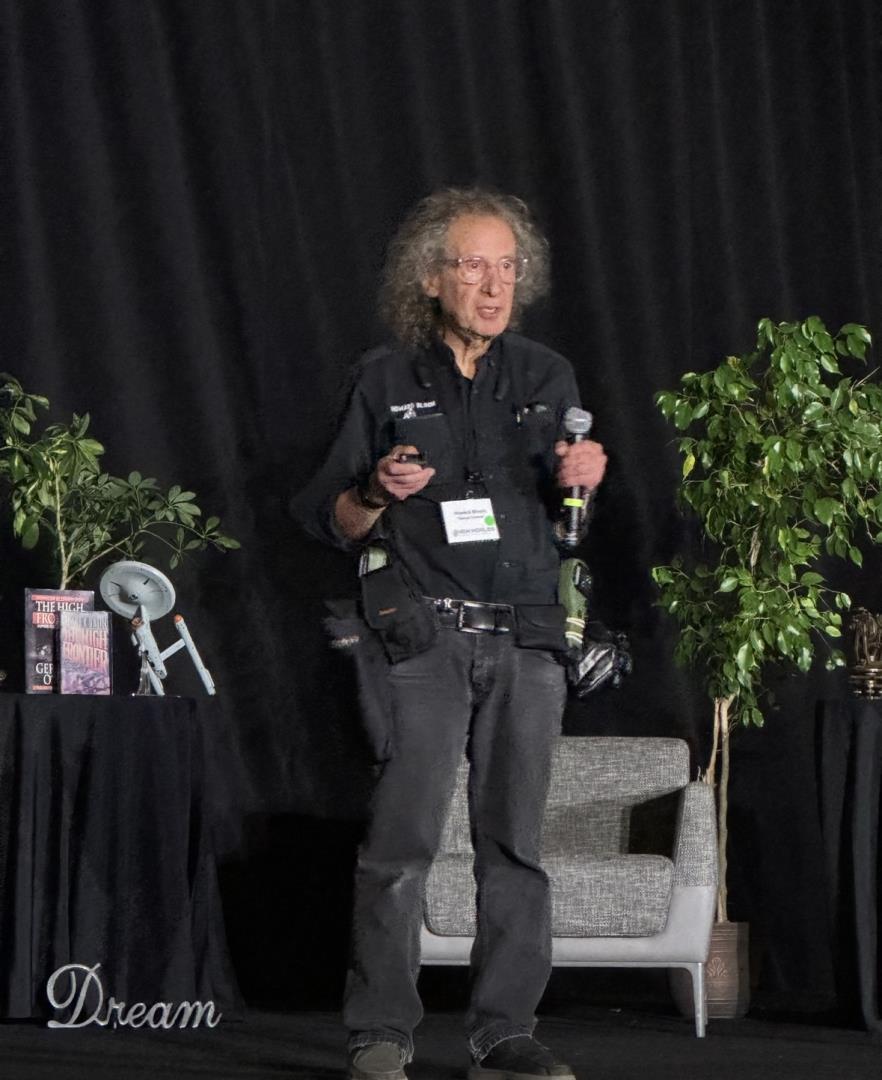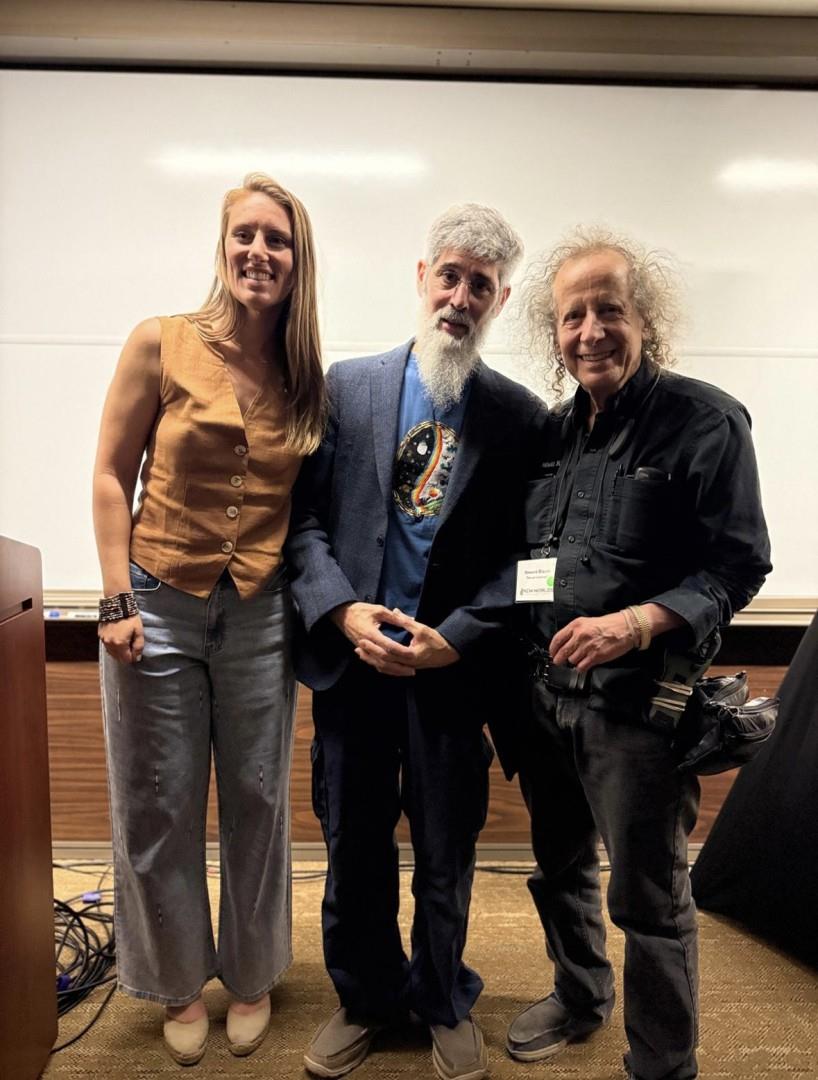
Howard Bloom Ignites The Cosmos:“Nature Orders Us To Go To Space” At The New Worlds Conference In Texas

In Austin, Texas, beneath the glowing lights of the New Worlds Space Conference, one voice rose above the technical jargon and scientific frameworks to ignite something deeper-a sense of cosmic purpose. That voice belonged to Howard Bloom, the celebrated scientific thinker and author whose ideas have been compared to those of Einstein, Newton, Darwin, and Freud. His presentation, drawn from his new book The Case of the Sexual Cosmos: Everything You Know About Nature Is Wrong, became one of the most talked-about and transformative moments of the entire conference.
While other sessions explored propulsion systems, Mars colonies, and orbital economies, Bloom took the audience somewhere altogether different-into the mind of nature itself. His theme: Nature orders us to go to space. It was not a suggestion or an ambition, but an evolutionary imperative, built into the very structure of life.“We are not an anomaly,” Bloom declared.“We are Nature's tool for spreading life beyond one fragile planet.”
In his electrifying address, Bloom unveiled what he called“Nature's Seven Great Space Programs,” a sweeping narrative that connected microbes, dinosaurs, mammals, and humankind through a single cosmic instinct: the drive to expand, explore, and evolve. Each stage, he argued, represented a natural experiment-a rehearsal for the moment when life would finally lift itself off its birthplace and into the stars. It was science, philosophy, and poetry interwoven into a vision of destiny.
Audience members described Bloom's talk as“an intellectual awakening,” a moment when the abstract concept of space exploration became something visceral and inevitable. His language was at once scientific and mythic, bridging the gap between cold data and living wonder. Listeners leaned forward in their seats as he traced how evolution's greatest leaps-winged dinosaurs, airborne seeds, migratory mammals-were all precursors to the human dream of flight and beyond.
Bloom's ideas, though revolutionary, are grounded in his lifelong mission: to redefine how we see life's purpose. The Case of the Sexual Cosmos dismantles conventional biological thinking, arguing that cooperation and interconnection-not competition-drive the universe's creative energy. His premise is that sexuality, attraction, and reproduction are not mere biological functions, but nature's way of mixing information, generating innovation, and pushing life toward the next frontier. In that sense, space travel isn't just technological ambition-it's an act of nature fulfilling itself.
The atmosphere at the conference reflected that revelation. Seasoned scientists, entrepreneurs, and students left Bloom's session buzzing with ideas. Many said it felt like seeing the cosmos not as a void to be conquered, but as a home to be inherited. Others compared his message to a philosophical reboot for humanity's spacefaring future-one that fuses science with soul.
Later, Bloom joined filmmakers Emily L. Collins and David Sky Brody for a special panel centered on space cinema and storytelling. The trio engaged the audience in a lively exchange that wove together art, science, and imagination. Collins previewed her in-progress documentary SpaceBorne and screened her short film Are You Ready to Fly?, a visual interpretation of one of Bloom's most whimsical and profound parables-“The Tale of the Loony Dinosaurs Who Flew.” Bloom himself had recorded the soundtrack, lending his signature voice to the film's rhythmic urgency and cosmic optimism.
To witness this collaboration was to glimpse the interdisciplinary spirit that Bloom embodies. His work dissolves the walls between science and art, intellect and intuition. Whether writing about physics, neuroscience, or human behavior, he insists that curiosity and creativity are not opposites-they are twin forces that fuel discovery.
Bloom's presence at the New Worlds Conference brought an emotional and intellectual dimension to a gathering largely defined by engineering and policy. His words reminded attendees that space exploration is not merely a technological enterprise, but a continuation of life's grandest experiment.“Nature,” he said,“is not static. It is a restless dream. And we are its dreamers.”
By the time the applause subsided, it was clear that Howard Bloom had done more than deliver a keynote-he had redefined the conversation. Space, as he framed it, was no longer an industry or an ambition. It was a biological calling, a love story written across billions of years.
As participants spilled out into the Austin night, still discussing the implications of his talk, one phrase lingered on nearly everyone's lips-a phrase that could well become a rallying cry for the next generation of explorers:
“Nature doesn't just want us to go to space-Nature needs us to.”
For more, see or

Legal Disclaimer:
MENAFN provides the
information “as is” without warranty of any kind. We do not accept
any responsibility or liability for the accuracy, content, images,
videos, licenses, completeness, legality, or reliability of the information
contained in this article. If you have any complaints or copyright
issues related to this article, kindly contact the provider above.


















Comments
No comment